Sorted by date Results 1 - 25 of 31
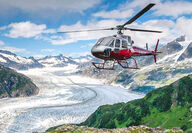
With a world now connected by commercial aircraft, defended by sound-breaking jets, and explored by the bizarre rotors of a helicopter, aviation is a concept now often taken for granted but still nonetheless a gift that should be admired as it has allowed an evolution no less impactful than today's internet. While many may think the advent of aviation came solely from the wild imaginings of the Wright Brothers at the turn of the 20th century, the dream of flight has been speck... Full story
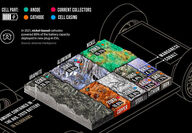
For those in the know, Alaska's resources aren't just some surprise windfall for renewable energy technologies. While precious metals like gold and silver have been the primary focus of more than a century of mining up north, the 49th State is home to 49 of the 50 materials on the United States' critical minerals list and has a history of stepping up to the plate to provide America with critical minerals when they are needed the most. Looking ahead over the next two to three...
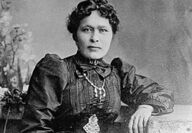
For over a century, the men of the Discovery enjoyed the reputation, renown, and riches; now, Kate Carmack will be remembered too. Tales of the original Klondike discoverers that opened the floodgates for tens of thousands of stampeders to make their way North in search of gold often forget a First Woman of the Yukon that supported them through the challenging times of the early 20th century. A person of quiet stoicism and dutiful integrity, this figure weathered a time where... Full story
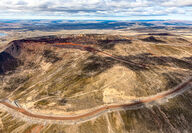
Few men and women could attest to having lived with an adventurous spirit and actually having gone and adventured, but this isn't so for mining and aviation pioneer Ronald Sheardown. Soon to be inducted into the Alaska Aviation Museum's Hall of Fame for Pathway and Explorer Pilot this year, Ron has lived a life many could not even dream about. Born in Bolton, Ontario, in 1936 – a stone's throw from Toronto – Ron came from a time when aviation was still in its fledgling yea... Full story

While the journey west during the frontier days often paints a picture of strife and hardship, not every tale was filled with sorrow and loss. Although covered wagons were definitely a thing, the journey toward greener pastures became much less arduous as steamboats and stagecoaches followed routes mapped by the earliest pioneers. However, it was the coming of the railroad that increased the speed of the trek, and its effectiveness in travel persists even today. For much of... Full story
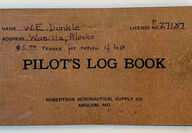
As we honor tradition and significant achievement toward mining, mineral exploration, or all-around trailblazing in Alaska, there are many individuals who have been immortalized through the Alaska Mining Hall of Fame. Among these legends is Wesley Earl Dunkle, whose impacts on Last Frontier aviation are as memorable as his mining exploits and possibly even more strongly felt today. In 2006, Charles Hawley chronicled Dunkle's high-flying Alaska exploits in a book titled...
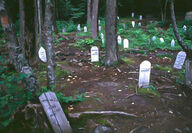
For this special spooky edition, North of 60 Mining News is revisiting some of the most bizarre and disturbing ghost towns in its northern coverage area. From one of the most haunted places in Alaska to a practically unknown trading post in Nunavut, enjoy this eerie account of places that once thrived but are now all but forgotten with nary the skeleton of infrastructure to prove its existence. Let us peer into the oftentimes short-lived bastions of civilization that, for... Full story

It all began in 1991, when geologists Charles E. Fipke and Stewart Blusson found 81 small diamonds at Lac de Gras in Northwest Territories, Canada, marking the first diamond pipe discovery in North America. While this groundbreaking discovery is often synonymous with the name Chuck Fipke – as it was the culmination of his relentless pursuit of elusive diamond indicator minerals for hundreds of kilometers from the Mackenzie River Valley eastward to their source near Lac de G... Full story
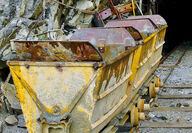
Roughly a 90-minute drive from Anchorage, it can be easy to miss Willow as one makes their way northbound. The view of Denali on the horizon, perhaps a visit to the Princess Lodge or a journey to Fairbanks. Even many lifelong residents may miss it for the more scenic destinations such as Talkeetna, yet the short blip that is Willow used to mean a lot more than buying fireworks. From 201 residents at the start of the new millennia to 190 in 2020, not much has changed in the... Full story
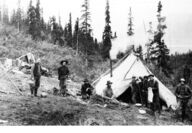
"During the two decades preceding and those following World War I, when the United States produced more than half the world's copper, the mines at Kennecott, Alaska were among the nation's largest, and contained the last of the great high grade copper ore deposits discovered in the American West. Just as mining technology was gearing up to exploit the low-grade ores that remained in the West, the Kennecott mines exposed an ore deposit of quality unequaled anywhere in the... Full story
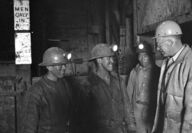
Found within the newest territory of Canada, Nunavut may seem barren and inhospitable, yet it has provided resources and succor to its First Peoples for thousands of years. While European colonizers and the indigenous peoples in their ancestral home suffered many differences, it was the shared efforts of the two groups in trade and labor that bridged this gap, eventually leading to the formation of Nunavut itself. While it may seem strange, as history often describes events... Full story
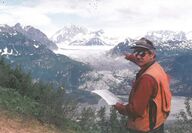
Throughout the relatively short modern history of Alaska, many nameless and oft unrecognized explorers have contributed to the Last Frontier state in ways that future generations will never be able to truly appreciate. This, however, is not the case for Bill Ellis, an explorer and geologist who has gifted his knowledge and experience for nearly half a century and personifies the attitude needed to succeed in mineral exploration, optimism. As if by providence, Bill was born in... Full story
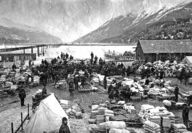
If one were to stand in the dense, silent coastal forest at the head of the Taiya Inlet today, it would be nearly impossible to imagine that 123 years prior, this Southeast Alaska locale was home to Dyea, one of the most meteoric boomtowns in North American history. Transforming from the timeless presence of nature to a bustling city and then back again over the span of a few years, for a brief moment of history Dyea offered gold-hungry pioneers a final taste of civilization... Full story
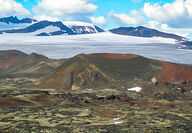
From the Coast Mountains in the west to the lower parts of the Yukon's Boreal forest in the north, the Cassiar Mountain range in the east, and the headwaters of the Nass and Skeena Rivers in the south, an ancestral indigenous people known as Tahltans has called Northern British Columbia home for thousands of years. According to a 2003 sourcebook prepared by the Museum of Anthropology entitled "Mehodihi: Well-Known Traditions of Tahltan People," the Tahltan Nation, which... Full story
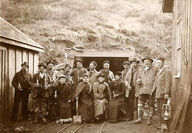
After the United States' purchase of Alaska, and before the boom brought on by the Klondike Gold Rush, a small island just off the Alaska Peninsula would have gold-bearing quartz discovered, inevitably booming a small trade hub known as Delarov, or as it came to be known, Unga. As it stretches like a broken bridge from the continent of North America to the continent of Asia, many forget the large chain of islands that occupies an area of 6,821 square miles and extends nearly... Full story
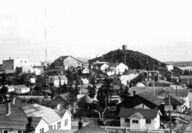
Far to the north lies the second largest of Canada's three territories, simply named the Northwest Territories, and within this vast region of more than 400,000 square miles lies its only city, the capital called Yellowknife. Yellowknife, and most of the region of the Northwest Territories, lies within what is known as the Canadian Shield, a large area of Precambrian igneous and metamorphic rock, meaning it dates to the earliest part of Earth's history. Scoured down to stone... Full story
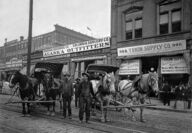
As the historian Murray Morgan once observed, Seattle residents "tend to look on Alaska as their very own... Seattle stores display sub-arctic clothing, though Puget Sound winters are usually mild; Seattle curio shops feature totem poles, though no Puget Sound Indian ever carved one." This perception is possibly one of the largest legacies of the Klondike Gold Rush, which links Seattle and the Last Frontier in the public mind. Yet, the success and brotherhood shared between... Full story
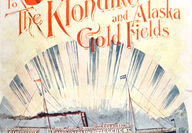
"Less than a year after the formal transfer of Alaska from Russia to the United States, there was formed under California law a corporation named the Alaska Commercial Company. Its home office was in San Francisco, but its activities were to center in Alaska, where it soon became a power in the land. Indeed, at sometimes and places it was the only effective power." This an excerpt from a piece written by Frank H. Sloss in July 1977 for The Pacific Northwest Quarterly titled,... Full story
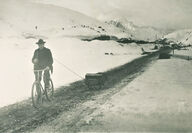
Over a century ago, a gold rush pioneer set out on an incredible journey of more than one thousand miles across the breadth of Alaska upon his two-wheeled iron steed, braving the brutal winter weather and untamed wilds in search of fortune. This is the story of Edward Jesson, who biked from Dawson City to Nome in the year 1900, a journey, all thought, he would never return from. Before the Alaska gold rush era, the world-wide bicycle craze of the 1890s was in full swing, with... Full story
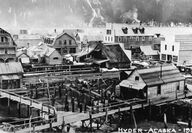
Resting on the eastern fringe of the Misty Fjords National Monument, at the head of Portland Canal, the Southeast Alaska mining town of Hyder survives through a symbiotic relationship with Stewart, a British Columbia mining town that lies just two miles (3.2 kilometers) to the east. Persisting for over a century as a town that identifies more closely with its Canadian neighbor than distant Alaska towns, Hyder found its lifeline being nearly cut off by the coronavirus... Full story
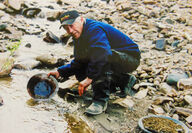
From sourdoughs dipping pans into creeks at the northern edge of the frontier to enormous haul trucks dumping ore on a heap leach pad, the story of Dublin Gulch is a 125-year saga of trials and triumphs that culminates in the rise of Eagle Gold, the largest gold mine ever to be built in the legendary Yukon Territory. Like many of the tales of Yukon and Alaska's gold rush days, the Dublin Gulch journey begins with Jack McQuesten, oft called the father of the Yukon, and his... Full story
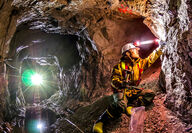
Mining found its way to the remote Kitsault Valley in northwestern British Columbia around 1910, bringing with it the ups and downs typical of mining regions in a bygone era. Roughly 29 miles southeast of Stewart and just outside of reach of the Golden Triangle, this area of B.C. has proven to be a treasure chest of minerals such as silver, gold, copper, zinc, lead, and molybdenum for more than a century. The first boom in the Kitsault Valley came with the Dolly Varden silver... Full story
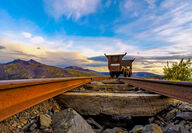
More than a century-old silver discovery turned settlement may see a revitalization with recent exploration efforts at the Keno Hill District. Lying within the traditional land of the First Nation of Na-Cho Nyäk Dun, the Keno Hill Mining District comprises almost 90 square miles (235 square kilometers) characterized by numerous mineral occurrences in more than 35 mines with a history of production. According to the Yukon government records, between 1913 and 1989 the district... Full story
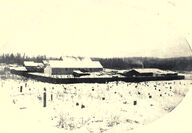
A true northern pioneer far from his Eastern European home, 'Wise' Mike Stepovich, settles in a new land and leaves behind a historic legacy in Alaska's Golden Heart City. The history of Fairbanks is not unlike many other gold rush settlements, rife with rugged explorers, savvy tycoons and luckless vagabonds. So, the melting pot of happenstance plays its hand again and begets a fascinating tale of a frontier city and a man far from home. It is hard to say whether Stepovich... Full story
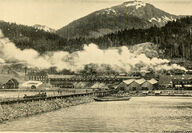
The incredibly interesting history of Juneau is a tale of gold, the persistence of a Tlingit chief and a series of chance events that allowed Alaska's future capital to grow and leave its mark on history, a story that continues to be written today. Juneau is home to some of the earliest large-scale gold mining sites in Alaska. But, if you were to ask the pioneers who founded the future capital that their settlement would become the seat of government in a future state of... Full story